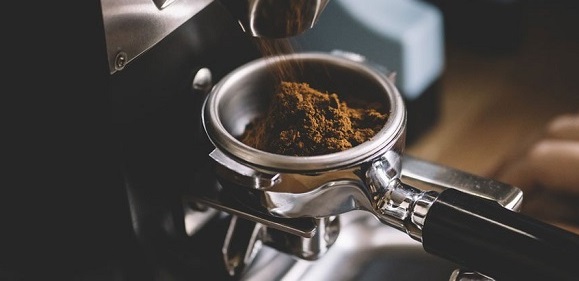Engineers have figured out how to use old coffee grounds to pave roadways

Well, most of the time they`re thrown in the bin and ends up in landfill, or otherwise get washed down the sink and end up in the ocean. But what if there were another solution?
Well, engineers in Australia have come up with a unique way of repurposing spent coffee grounds, which in a city the size of Sydney are estimated to produce some 3,000 tonnes of waste annually. Their answer to the problem? Recycle old coffee into the roads we drive on.
Researcher Arul Arulrajah leads the geotechnical group in the Centre for Sustainable Infrastructure at Swinburne University of Technology. This involves looking at how recycled materials such as crushed brick, glass, and concrete can be repurposed for things like road construction. But have we been missing out on another bountiful byproduct this whole time?
"I see the baristas throwing away the used coffee grounds and I think, `Why not look at this as an engineering material?`" says Arulrajah, who is an avid coffee drinker.
So he and Swinburne PhD candidate Teck-Ang Kua – along with fellow researchers from China and Thailand – set out to investigate whether old coffee grounds were equally amenable to paving the streets outside your house. And it turns out they are.
Collecting used grounds from cafés around Swinburne`s Hawthorn campus, a little to the east of Melbourne, the team dried them in an oven for five days at 50°C (122°F), then sieved them to filter out any lumps. They then mixed the dried grounds together with slag, the waste product left over from steel manufacture.
The resulting mix – 70 percent coffee, 30 percent slag – was bound together with a liquid alkaline solution and compressed into cylindrical blocks, which in the researchers` testing turned out to be strong enough to serve as the subgrade material that sits under the surface of roads.
"On average the cafés we collect from dispose of about 150 kg of coffee grounds per week," says Arulrajah. "We estimate that the coffee grounds from Melbourne`s cafés could be used to build 5 kilometres of road per year. This would reduce landfill and the demand for virgin quarry materials."
If the same approach were adopted worldwide – and admittedly, that`s a big if, since it would mean overhauling an entire industry – millions of tonnes of spent coffee grounds annually could be put to good use in roadways, rather than simply being buried in landfill.
"There would be enormous carbon savings, you are ticking all the boxes in terms of sustainability," Arulrajah told Olivia Gibson at Broadsheet. "Essentially, if a road constructor comes along, we have created the recipe for them to use coffee grounds in the road."















































